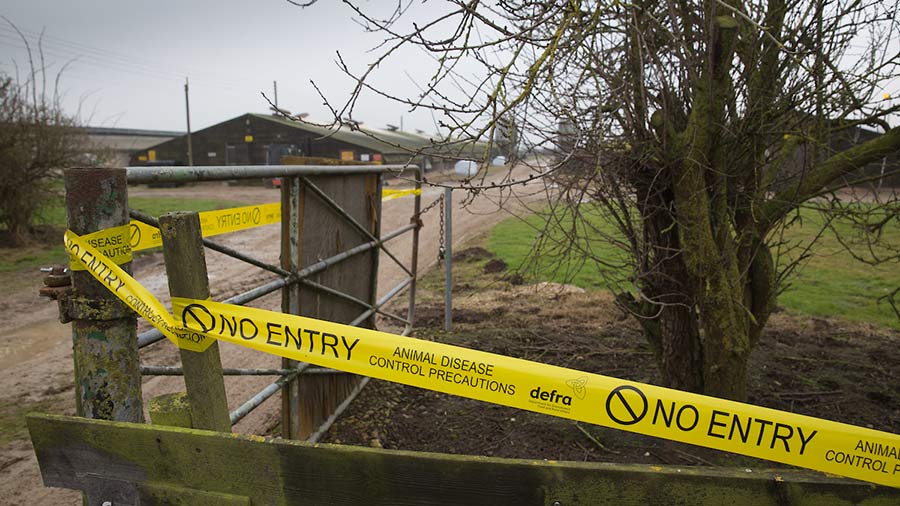NFU backs legal challenge for better bird flu compensation
 © Tim Scrivener
© Tim Scrivener The NFU is backing a group of members in legal action against the Animal and Plant Health Agency in an attempt to secure better compensation for poultrykeepers hit by avian influenza.
Compensation is currently based on the value of any surviving healthy birds following an outbreak of the disease, with birds that have either died or are sick not qualifying for any payment.
Previously, compensation was only assessed on completion of culling on an affected premises.
See also: Why bird flu threat is rising and what can be done about it
But given the lack of culling resources and the resultant delays to this actually happening – a delay that itself could lead to increased mortality and so lower compensation – the rules were changed in late October.
Under the new arrangement, compensation became payable to farmers from the outset of planned culling rather than at the end.
“This will allow us to provide swifter payments to help stem any cashflow pressures and give earlier certainty about entitlement to compensation,” said Defra at the time.
Payment shortfalls
But the NFU says this still does not go far enough.
It can still take 48 hours from confirmation of the disease on a holding for the chief vet to issue culling approval, during which time many more birds will be dead or showing clinical signs of avian influenza – especially in turkey flocks.
NFU poultry board chairman James Mottershead says this is leading to substantial shortfalls in the payments being made.
“The members bringing this case argue that the Animal and Plant Health Agency [Apha] has misinterpreted the legislation on compensation paid to poultry farmers affected by avian influenza,” he said.
“This case could have far-reaching implications for other NFU poultry members and that is why the NFU has decided to become an interested party, enabling us to submit our own evidence in support of our members.
“The NFU and its Legal Assistance Scheme have also committed to providing significant funding to support the members bringing the claim.”
‘Devastating’
Mr Mottershead added that the financial implications of avian influenza are huge, and the emotional strain on affected farmers and their families is devastating, with many reconsidering their future.
“This is the worst outbreak of the disease in the UK to date, with no end in sight. We need this matter resolved as soon as possible.”
It is understood that the NFU would like to see compensation agreed at the time of disease confirmation, rather than “culling approval”, and to cover both healthy and suspected birds condemned for culling.
“If paid in a timely manner, businesses would be able to react more swiftly in carrying out secondary cleansing/disinfection and restocking birds,” it said in a recent briefing to MPs.
“This would facilitate efforts to contain the spread of the disease as well as offer vital financial protection to poultry farmers’ livelihoods.”
Compensation
Defra has confirmed that, by 21 November, it had processed payments worth £2.48m in respect of cases of avian influenza in poultry or other captive birds since 1 October 2022.
Compensation is established by the Apha using a valuation rate card, which is updated five times a year to ensure rates are in line with average market values for the types of birds.
Compensation is not paid for consequential losses, including business interruption caused by control measures, nor for eggs or poultry meat.
Defra said it could not comment on ongoing or prospective legal proceedings.
